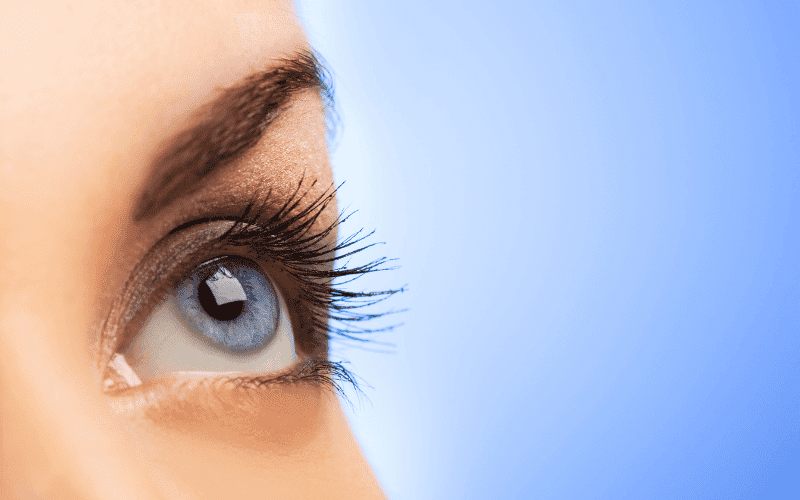Have you ever found yourself rubbing your eyes after a long day in front of a screen? You are not alone. More than 60% of Americans report experiencing symptoms of digital eye strain.
Despite our reliance on vision, eye care often takes a back seat in our health routines. Many people focus on general wellness but overlook the importance of maintaining eye health.
This blog highlights why eye care is essential and offers tips on how to incorporate it into your daily routine. Your eyes deserve the same attention as the rest of your body, and it’s time we make eye care a priority.
Why Eye Care is Essential?
Prevention of Eye Conditions:
Prevention is one of the main justifications for giving eye care top priority. Regular eye check-ups can detect conditions like glaucoma, cataracts, and macular degeneration early. Early detection allows for prompt treatment, which can slow or prevent vision loss.
For example, catching glaucoma in its early stages can prevent damage to the optic nerve. Prevention is always better than cure, and this is especially true for your eyes.
Connection Between Eye Health and Overall Health:
Your eyes can reveal more than just vision problems. Early indications of several systemic disorders, including diabetes and hypertension, are visible in the eyes. One complication of diabetes that damages the blood vessels in the retina is diabetic retinopathy.
An increase in blood pressure can harm the blood vessels in the eyes, resulting in visual impairments. Regular eye exams can sometimes reveal these health issues before other symptoms appear, allowing for early intervention.
Improved Quality of Life:
Good vision is essential for a high quality of life. It affects every aspect of your daily life, from reading and driving to enjoying hobbies and working efficiently. Poor vision can lead to decreased productivity at work, difficulties in social interactions, and even accidents.
You can guarantee that you will always be able to take pleasure in life’s little pleasures by taking care of your eyes. Regular eye care can help maintain clear vision, making daily tasks easier and more enjoyable.
Eye Care Tips and Best Practices
Regular Eye Exams:
One of the best methods to keep your eyes healthy is to make frequent appointments for eye exams. Annual examinations can identify changes in your vision or early indicators of eye diseases even if you have excellent vision.
Your optometrist can assess your vision, prescribe corrective lenses if needed, and monitor your eyes for any changes. Regular exams are especially crucial for children, whose vision can change rapidly, and for older adults at risk for age-related eye diseases.
Protective Measures:
Protecting your eyes from external harm is vital. When you are outside, always wear sunglasses that block UV radiation to protect your eyes. Prolonged exposure to UV light can lead to cataracts and other eye issues.
At work, ensure your environment is well-lit to reduce eye strain. Adjust the brightness of your screens and position them at eye level to prevent strain on your eyes. To lessen digital eye strain, think about utilizing blue light filters on your gadgets.
Healthy Diet for Eyes:
A healthy diet is essential for preserving eye health. A diet high in minerals and vitamins can help keep your vision healthy.
Foods high in vitamin A, such as carrots and sweet potatoes, support the health of the retina. Leafy greens like spinach and kale are packed with antioxidants like lutein and zeaxanthin, which help prevent cataracts and age-related macular degeneration.
Flaxseeds and seafood, such as salmon, are good sources of omega-3 fatty acids, which can help prevent dry eyes and preserve general eye health.
Proper Hygiene:
Maintaining good eye hygiene can prevent infections and other issues. Avoid putting dirty hands near your eyes to reduce the risk of getting an infection such as conjunctivitis. If you wear makeup, ensure it’s safe for use around the eyes and replace it regularly to avoid bacterial contamination.
Wearers of contact lenses should carefully follow the directions provided by their eye care professional, cleaning their lenses as instructed and never leaving them on longer than is advised. Proper hygiene is essential for keeping your eyes healthy and free from infections.
Exercise for Eyes:
Just like the rest of your body, your eyes need exercise to stay in top shape. The 20-20-20 rule is a simple exercise to reduce digital eye strain: every 20 minutes, look at something 20 feet away for at least 20 seconds. This gives your eyes a break from focusing on a screen and helps reduce strain.
Eye exercises can also include simple activities like rolling your eyes, blinking more often, and focusing on distant objects. These exercises can help keep your eyes relaxed and reduce the effects of prolonged screen use.
Integrating Eye Care into Your Daily Routine
Morning and Nighttime Routines:
Incorporating eye care in Atascocita into your daily routine does not have to be difficult. In the morning, consider applying a hydrating eye cream to reduce puffiness and protect the delicate skin around your eyes. During the day, take regular breaks from screens to rest your eyes.
Following the 20-20-20 rule is an easy way to do this. At night, remove any eye makeup thoroughly to prevent irritation and infection. Applying a warm compress before bed can also help soothe tired eyes and reduce any inflammation.
Workplace Eye Care:
For those who work at a desk, eye care is crucial. Ensure your workstation is ergonomically set up to reduce strain. Your screen should be at eye level, about an arm’s length away. Take regular breaks to avoid staring at the screen for extended periods.
Adjust the lighting in your workspace to reduce glare on your screen. You can also use artificial tears if you experience dry eyes due to prolonged screen time. Simple adjustments at work can make a significant difference in maintaining your eye health.
For Contact Lens Wearers:
If you wear contact lenses, eye care becomes even more important. Always wash your hands before handling your lenses to prevent infections. Follow the recommended cleaning and storage instructions for your lenses to keep them free from bacteria.
Never wear your contacts longer than prescribed, and replace them as directed. Avoid sleeping in your contacts unless they are specifically designed for overnight wear. Proper contact lens care is essential to prevent serious eye infections and maintain healthy vision.
Eye care is an essential part of your overall health routine. Your eyes are a window to the world and a reflection of your general health. By integrating regular eye exams, protective measures, proper hygiene, and a healthy diet into your daily routine, you can maintain good vision and prevent potential eye problems.
Do not wait for symptoms to appear—start prioritizing your eye care today. Schedule an eye exam and take the first step towards better eye health.


